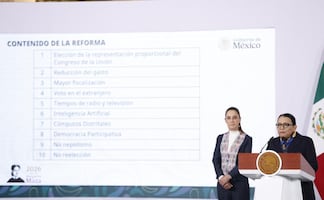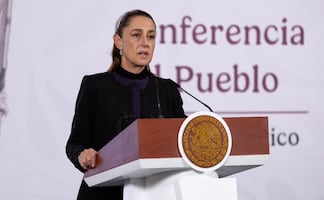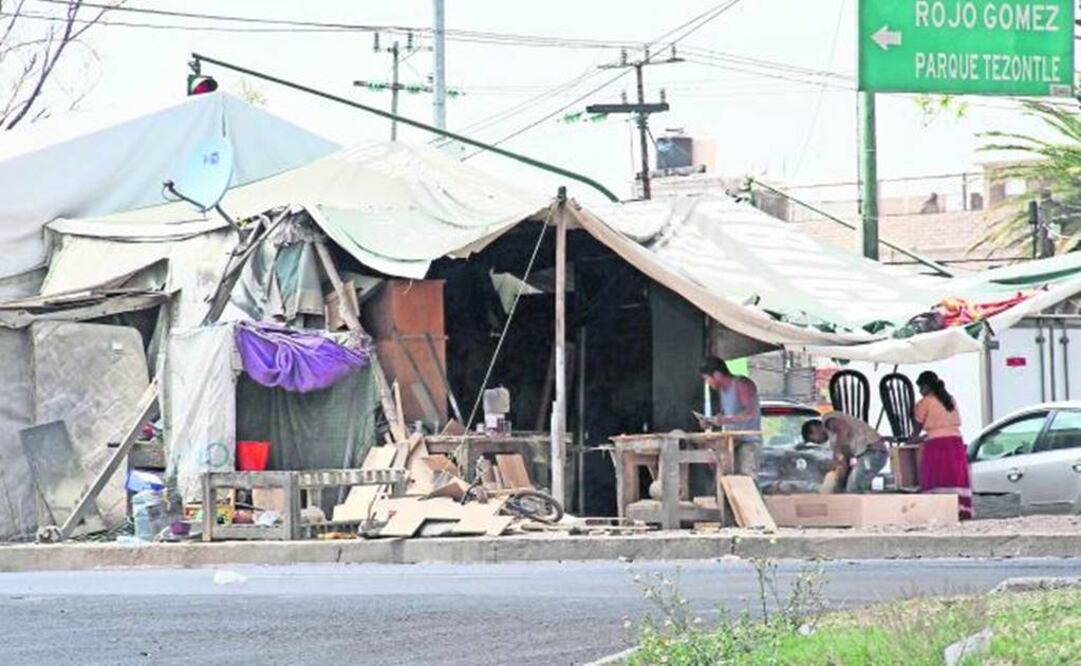Más Información

Excandidato de Verde y PT amenaza e insulta a Loret; “a mí me gustan los corridos de capos, qué pedo”, le dice

Reforma electoral propone que 500 diputados y 96 senadores realicen campaña para obtener el voto; así serán asignados

Luisa Alcalde reta a dirigentes de oposición a aceptar que la ciudadanía vote por pluris; seguridad es tema popular, revira PAN

Sheinbaum ajusta horario de conferencia mañanera este 26 de febrero; se realizará desde Mazatlán, Sinaloa

El Cártel del Milenio, la cuna de “El Mencho” para ascender en el mundo criminal; así rompió con el Cártel de Sinaloa para crear el CJNG
Opposition lawmakers criticized Mexico's independent statistics agency on Tuesday for changes in polling techniques in a survey that suggested income among the poorest Mexicans had jumped by a third.
Lawmakers said the survey, published on July 15, created suspicions that pollsters had manipulated data in order to show a drop in poverty after a previous study had shown poverty increased in Mexico in 2014.
"The credibility of an institution so important as (statistics agency) INEGI is in doubt," said Senator Ernesto Cordero, a former finance minister from the conservative National Action Party (PAN).
The survey sparked a scandal in Mexico after CONEVAL, another government agency that measures poverty using INEGI's income data, said the statistics agency's survey was not "congruent" with other published data.
The heads of both INEGI and CONEVAL testified on Tuesday before a panel of lawmakers.
CONEVAL head Gonzálo Hernández said "it was a very big surprise" when he received the results of the INEGI survey and found out that they were not comparable to previous polls due to changes in polling techniques.
The new data shows a nearly 34 percent jump in the income of the poorest households in just one year, according to CONEVAL. Hernández said CONEVAL would be unable to produce a new series of poverty data for 2015 due to the changes.
INEGI said it had "improved" its polling techniques in order to overcome an inherent bias in such surveys where respondents underreport their income.
INEGI Director Julio Santaella told lawmakers that there was no "fraud" in INEGI's polling changes. He said pollsters had been encouraged to seek clearer answers on income.
Santaella said some of the respondents from Mexico's poorest households had been surveyed a second time to make sure they were not underreporting their income.
He said the households that had been questioned a second time were less than 1 percent of the total sample.
Lawmakers criticized the effort to "pressure" poor households while similar efforts were not made for wealthier homes since the results could skew measurements of inequality.
Last July, CONEVAL had said that the number of Mexicans living in poverty had risen to 46.2 percent of the population in 2014 compared with 45.5 percent in 2012.
Noticias según tus intereses
[Publicidad]
[Publicidad]









